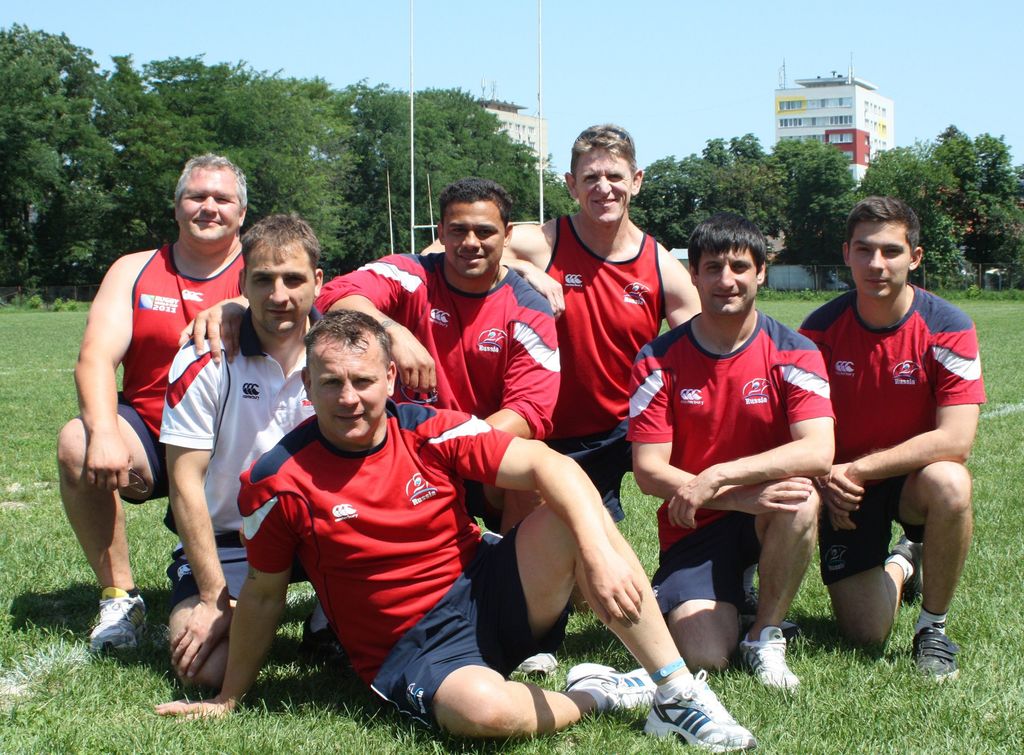By Chris Thau
When Russia qualified for their first ever Rugby World Cup and joined Pool C in New Zealand, then head coach Nikolay Nerush had achieved his goal.
Following four defeats during a campaign which provided a steep learning curve, Nerush stood down at the end of the tournament to make way for a new team appointed to take Russia all the way to Rugby World Cup 2015.
Former Sale Sharks coach and Wales flanker Kingsley Jones is the man tasked with turning ambition into reality and the IRB Nations Cup 2012 has provided a first outing since Rugby’s showpiece event to test the players and the new-look coaching team.
Despite a first-round loss to Emerging Italy, third place is still within reach if the Bears can beat a talented Argentina Jaguars side in the final round, having overcome Uruguay on Tuesday.
In line with modern coaching techniques, Jones has gathered a strong team of experts to build on Russia’s RWC experience coupled with his own successful coaching career, which includes a Premiership title with Sharks while working alongside fellow international coach Philippe Saint-Andre.
Jones enjoyed a successful playing career winning 10 caps for his beloved Wales, as well as captaining the national side. He was also captain at virtually every club and team he played for, including the Barbarians and Crawhays.
By 2001, as his extended playing career was approaching the end, he had already passed the WRU Level 4 coaching exams and spent his final year at Worcester helping the late John Brain coaching the side.
His first full-time coaching job came at Doncaster RFC, from where his old Gloucester teammate and friend Philippe Saint-Andre lured him to Sale, where he stayed for the following seven years, five of which as Saint-Andre’s forwards coach.
Under the influence of the Frenchman, whose uncanny vision he described as “bordering on genius” he fine tuned his coaching skills and became an accomplished man-manager and organiser, qualities he needed badly in his new role.
Merging Russian with European techniques
His no-nonsense, direct style has gone down a treat with the Russian players, seriously impressed by his efforts to master their language and his understated intensity on and off the pitch. One of the youngest head coaches in international rugby, he has built up a strong management team underpinned by the two English-speaking Russian managers, General Manager Zorik Masandilov and his right-hand man, Team Manager Sergey Markov.
Thirty-six year old Zorik Massandilov, who played both fullback and fly-half for Moscow’s leading club the VVA Academy (Monino), from U11s until he made his senior debut at 17, under Coach Nerush. When an injury bought his playing career to an abrupt end, he was appointed assistant manager.
Twenty-five year old Sergey Markov, a graduate of MEPHI - a Moscow Science and Engineering University for whom he is still playing rugby – became team manager in 2010 and there are two further Russian-speaking members of the management team, Dr Andry Nikitin and the video-analyst Ilya Tiron.
“I was guided by two principles in putting together this coaching team: one was finding the best-qualified people to do the job and the second was recruiting people I knew, able to do the job to the highest possible standard,” said Jones.
“ Paul Pook is a world-class conditioning coach – he worked with Ireland when they won the Grand Slam in 2008 - and Siua “Josh” Taumalolo, who was Tonga backs coach in the World Cup and coached the Sevens team, also has tremendous experience and I rate him highly.”
“Henry Paul does skills work with the players and is the coach of the Sevens team, while Lions and Wales man Darren Morris is coaching the Russian scrum.”
Russia have an eye on RWC 2015
With a commitment now to more matches among Tier One and Two nations, the IRB Nations Cup has provided regular competition to those Unions funded via the IRB’s Strategic Investment Programme.
Core participants over the past five years such as hosts Romania, Georgia and Portugal have benefited from testing themselves against leading A teams and emerging nations, such as Russia.
The participating Unions have also been able to share best-practice coaching and preparation techniques, exchange ideas and views and learning from each other. With coaching methods and sports science techniques making huge advances in recent years, together with strength and conditioning and player development, nations such as Russia have seized the momentum and the opportunities the tournament presents.
“It is like a puzzle , a well structured melange of strength, conditioning, nutrition, life-style, sports medicine and specific skills programmes, which are designed to help the individual players fulfil their potential,” observed IRB High Performance Consultant and former Scotland and Georgia coach Richie Dixon.
As qualification towards RWC 2015 advances, Russia will be hoping to make an improved showing on Rugby’s greatest stage.

